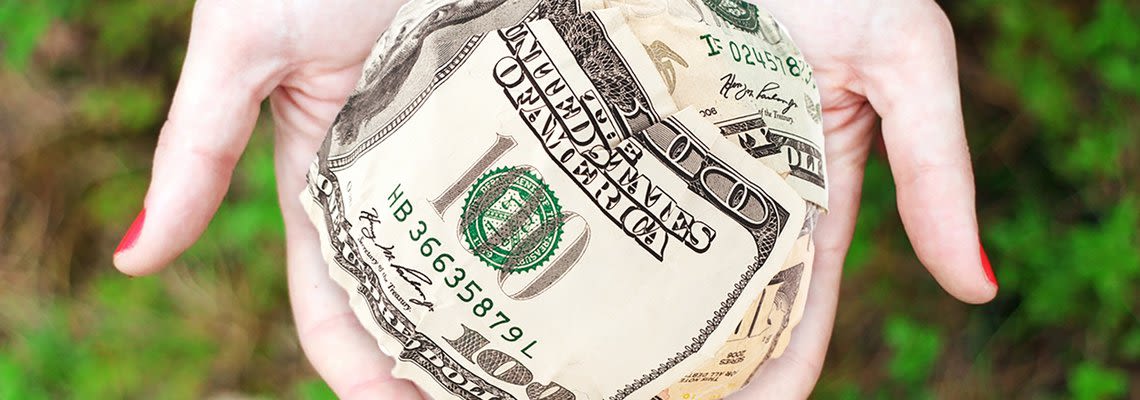
The Age of Transparency and Its Impact on The Nonprofit World
It's no surprise finding donors for your nonprofit is tough. Even so, when you find large enterprise donors, you must ensure that they are on the up and up and not people who are interested only in influence or money laundering. Securing funds for your nonprofit is a two-fold process: 1) finding a capable partner with the funds and 2) ensuring it doesn't lead to any additional stigma toward the nonprofit.
For example, the Austin LGBT Chamber of Commerce recently received a significant offer of sponsorship funds from Juul, the vaping organization. Several other chambers in the area accepted the money. However, the Austin LGBT Chamber board, of which I am a member, ultimately decided we could not take money from an organization known for targeting vulnerable communities with lower access to information and healthcare for tobacco product addictions. It was a matter of integrity. It was a tough decision because we could have done so much good for the community with that money, but at what cost? Ultimately, we are thankful not to have been swept into the negative press about Juul.
Several things to consider so your nonprofit doesn't end up being funded by philanthropists like Jeffrey Epstein. First, the commotions about finding suitable donors have nonprofits asking questions like, "Is online fundraising bad?" Even support from a big-ticket donor with conflicting political views can cause irreparable damage to a nonprofit.
Houston, we have a problem.
But now that we know we have a problem, the attorney in me is inclined to think about solutions. One such solution is to increase selectivity among donors. For example, Daniel Weiss, the President, and CEO of the Metropolitan Museum of Art in New York told The Art Newspaper:
"We take a look at individuals we're working with within a holistic way to get a sense of who they are, their motivations for working with us, and their background. It is not our goal to subject every donor to some high-level litmus test to determine their suitability for the Metropolitan as a potential donor.
"In the case of working with particular individuals, it's clear there is a line. We would not accept donations from high-level visible criminals or organizations that are egregious and violate our values or mission. But, at the same time, we are fundamentally supported by and operate based on philanthropy. That's the American model."
Is that enough?
In an age where technology drives results, people demand transparency and accountability. And if organizations aren't willing to provide it, they could find the current ripped open for them.
András Szántó, a prominent cultural policy and philanthropy consultant, states, "It's hard to satisfy all concerns and constituencies. The crises involved now play out in the open, stoked by social media. And there's no commonly accepted road map."
Even when organizations operate in unity with their guidelines, there are still instances in which donors can become tainted. Take the excellent faith donation David Radler issued to Queen's University before being charged with mail fraud and wire fraud, ultimately convicted of some charges. Queen's University returned the 1 million dollar donation saying the funds had been "compromised," and removed Radler's name from their donor wall.
Another way nonprofits can respond to tainted donors with varying degrees of success include compromises in which the nonprofit keeps the donation but removes the donor's name from any accolades. However, donor anonymity may not age well in an era where transparency is valued, and the internet makes it easy to get and share information.
Technically, there is no such thing as a completely anonymous donor, or shouldn't be - ever. With private foundations, all donors must be disclosed on the organization's tax return; and that is a public document open to public scrutiny. Public charities must disclose large donors on their tax returns. Even though not a completely public record, the donor's name minimally will be known to the tax preparer and the officer signing it. Moreover, the public charity's board of directors has the right, and fiduciary responsibility, to know the identity of donors. So, you have to assume that no matter how few, someone will see the donor's identity - not anonymous.
Donors who want anonymity may give gifts through an attorney or an anonymous donor-advised fund at another charity. Does anybody hear alarm bells? Maintaining donor anonymity from the public is one thing, but hiding the donor from the directors and staff responsible for the organization? I think not.
To combat the risk of taking a questionable donation and having that exposed, nonprofit organizations should have transparent, concrete plans in place that are used to vet every donor. Starting with a set of board-approved policies and guidelines is the bare minimum. The upside of this process is that the organization can form relationships with many of its donors.
If you want an attorney who can advise your nonprofit through a tainted donor crisis, contact Lynch Law.
Connect with us on LinkedIn!